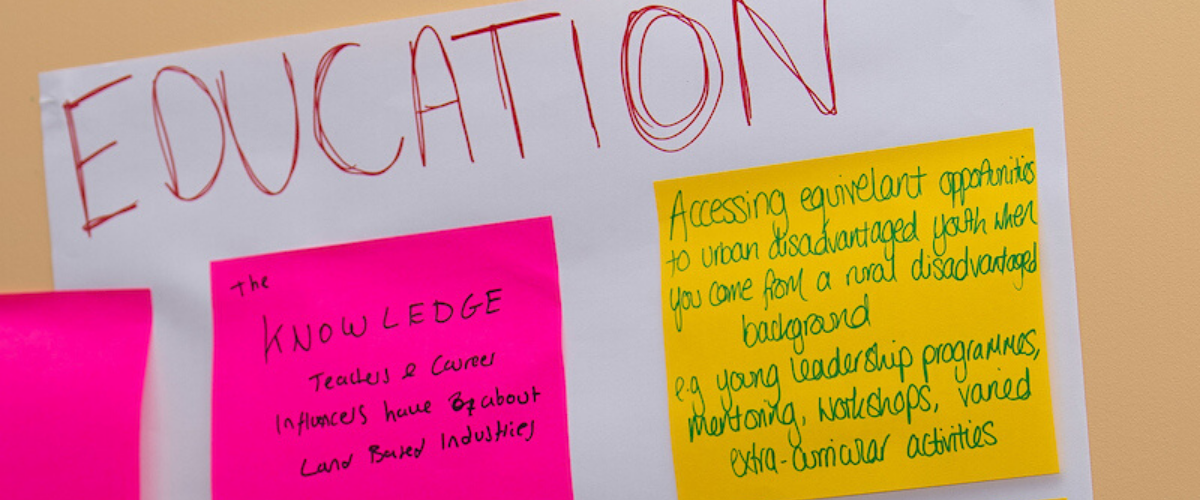Blogs & News
2019 Ideas Festival Biggest Issues Workshop: Education
23 January 2020

During the 2019 Rural Youth Project Ideas Festival, delegates were asked to identify the biggest issues in their community, collated below, in relation to the following categories: education, employment, infrastructure, health and 'other'.
These issues then formed the basis of the Design Thinking Workshop, a human-centred approach to creating new and innovative ideas, led by Rosemary Scrimgeour – who runs rural architecture practice Building Workshop with husband Ben - who is graduate of the Scottish Enterprise Rural Leadership Programme (SERLP).
Education:
“Drive to push everyone away to uni.”
“The knowledge teachers and career influences have about land based industries.”
“Funding for rural schools (especially for supporting low-income pupils and those with disabilities or mental health issues).”
“Lack of opportunities for youth to engage with eachother.”
“Making connections.”
“Very limited choices for college and university students.”
“Only secondary school on the island is poorly run and doesn’t support pupils with difficulties.”
“Distance learning doesn’t suit everyone.”
“Children who speak Gaelic are given a lot more experiences at school.”
“Accessing equivalent opportunities to urban disadvantaged youth when you come from a rural disadvantaged background. E.g young leadership programmes, mentoring, workshops, varied extra-curricular activities.”
“Being able to take the same breadth of subjects as students who attended urban schools e.g law, politics, classics, languages due to lack of teachers/specialists.”
“Feeling as if you have a choice in the types of schools that you can go to / alternative provision schools.”
“Education (primary): Rural areas - distance between cluster primary schools, Lack of technology - no wifi/ yet asked to teach STEM - ipads no wifi - poor phone signal, Difficult to get supply teachers, trips/bus costs distance from the central belt.”
“Recycling: people in my area don’t know how to recycle. We must have bins and information on what you can recycle but they are still filled with rubbish.”
“Lots of industrial waste from industrial waste from farmers (black plastic) that has nowhere to go.”
Registered in Scotland No. SC623598







